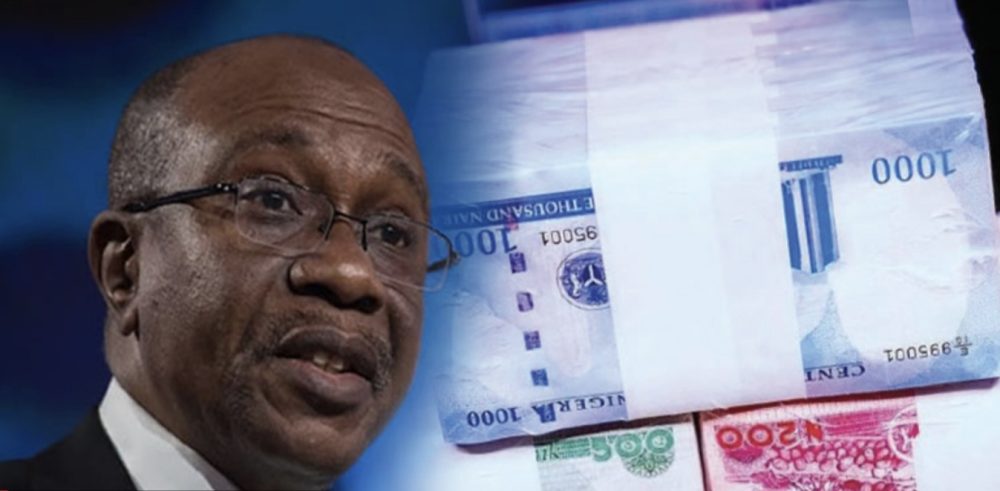The National Council of State yesterday advised the Central Bank of Nigeria (CBN) to make new naira notes available or re-circulate the old notes to ease the sufferings of Nigerians nationwide as a result of scarcity of cash.
The Council, presided over by President Muhammadu Buhari, during its first hybrid meeting this year, however, expressed its support for the government’s new monetary policy, but CBN to take urgent steps to arrest the scarcity of cash plaguing the country.
The outcomes of the meeting was disclosed to newsmen by the Attorney-General of the Federation and Minister of Justice, Abubakar Malami, who was accompanied by the governors of Lagos and Taraba states, Babajide Sanwo-Olu and Darius Ishaku, respectively, and Presidential Spokesman, Femi Adesina.
Disclosing the final resolutions of the meeting, Malami said the two major issues deliberated by members were the level of preparedness for the upcoming general election, which he said both the Chairman of the Independent National Electoral Commission (INEC), Prof. Mahmood Yakubu, and the Inspector-General of Police (IGP), Alkali Baba, had assured of adequate readiness.
He said the briefing on the new monetary policy, including the re-designing of some categories of the naira, elicited reactions and opinions, adding that the conclusion was that the CBN should do more to ensure there is circulation of adequate cash in the system to alleviate the harsh realities trailing the policy.
“So, by way of conclusion, the two major resolutions that were driven, arriving from the deliberations of the Council, are one, that we are on course as far as election is concerned and we are happy with the level of preparation by INEC and the institutions.
“Two, relating to the naira re-designed policy, the policy stands, but then the Council agreed that there is need for aggressive action on the part of the Central Bank, as it relates to the implementation of the policy by way of ensuring adequate provision being made with regard to the supply of the naira in the system,” he said.
Providing details of the proceedings of the meeting, Governor Ishaku disclosed that the most contentious issue was the cash scarcity, which had led to protests in some parts of the country, as a result of the hardship that had attended the cash swap policy of the CBN.
Ishaku said the Council advised the CBN Governor, Godwin Emefiele, to make the newly re-designed naira available by printing more or if printing would be difficult, the apex bank should re-circulate the old notes.
The governor said: “The INEC Chairman briefed the Council of State on their preparedness for the election on the 25th of this month and that of the 11th of next month that they are fully prepared. Also, Inspector-General of Police briefed Council that they are equally prepared for the election and both of them gave us the details of their preparedness.
“Lastly was the Governor of the Central Bank, who briefed us on the monetary change and the monetary issues that have arisen across the whole states in the federation and to give us the merits of that policy that was implemented.
“Basically, what took more time was that of the monetary issue, because of the hardship across the whole states. Generally, the view across the board is that principally the policy is accepted.
“Just like any new policy or any new change, at the beginning people resist it, even though it’s good, but generally it’s accepted. But the major issue across board, from all the states and most of the speakers, is that of implementation. So many views were proffered, particularly that the CBN governor should look into making sure that the new money is available in quantum.
“There were suggestions too that if the new money is not in circulation or printing them could be difficult, the old money that hasn’t been changed could be re-circulated and pumped into circulation to ease the tension, particularly for the poor people in our society, who will just need a little sum of money to buy their food, buy their drugs, on a daily basis and they cannot even afford it.

“So, the pains and the sentiments and the sentiments across the country are being expressed by different governors, my colleagues. And I think, collectively, all these ideas are to proffer solutions and advise to Mr. President and he was there physically. He was present! So, I’m sure that after this meeting, a lot of things will be done, particularly in easing the monetary tension in the society.”
Speaking with journalists after a separate meeting with the President, Lawan said he informed Buhari that the National Assembly had resolved that there should be no cap on currency swap policies because of the way the scenario is now playing out and how it impacts the constituents who make up their constituencies.
“For us in the Senate, initially, we felt that this policy, in the first place, is not a bad one. But we also feel there is no need for time limit. Allow the old and the new to co-exist until the old is phased out. So, what is wrong in that? This is not going to be the first country to deploy it that way. Other countries have been doing the same thing and to say that in three months it will be okay, it is not okay; especially in a country like ours, where maybe 80, 85, 90 per cent of the population have no access to banks.
“When Britain changed their currency, it took them over a year to change and the validity of the old remained and remains a legal tender, so why ours? We are not cashless yet and that society is cashless already and they needed even more time.
“So, we should have an open-ended time, but what will make it quick is for us to have more and more of the new currencies and then they co-exist with the old ones until the old dies a natural death,” Lawan said.

